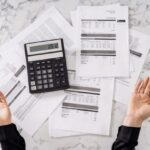In July last year, the BEA reconfigured its GDP benchmarks to incorporate the results of the comprehensive 2012 Economic Census. That broad and deep survey found much less “recovery” than the BEA had originally anticipated through its system of stochastic predictions. It is believed that these statistical agencies of the government actually measure results in the real economy but in reality they are really just sampling, benchmarking and then chaining together calculated variance. These are complex processes that leave wide open the introduction of many subjective factors – including trend-cycle.
I do not object to the concept of incorporating trend-cycle imputations into any economic account; instead, I have very grave concerns about doing so in this “cycle.” Because the post-Great Recession period has been unlike any other, it is highly questionable to use “smoothing factors” that are based on all prior cycles. That is the primary limitation of all statistics since it is subjective at the very front by assuming that the current period or immediate future will bear relatively close resemblance to the recent or studied past. If the future charts an entirely new course, then that will subject these accounts to questions of veracity particularly when it will be revealed afterward that they have been overstating economic growth/strength to a significant degree.
That was the interpretation of the GDP revisions last year, which did not settle the matter but rather only raised more questions about possible inaccuracy and overstating that would likely continue. That was my major contention when recounting this problem last July:
The significance of this belated-admission is far greater than any semantics about recession or cycle. The 2012 slowdown, now finding its way to GDP, shows the same permanent alteration in trajectory as so many other non-adjusted economic accounts. That has great implications for our current circumstances, not least of which is how GDP in 2014 (and likely 2015) might be similarly overstating the post-slowdown economy. [emphasis added]
In other words, GDP was the last to figure out “something” had changed in 2011. There were already a great many indications that that was the case, and the fact that these other accounts and estimates had discovered this shift or inflection all in unison was far more compelling than the BEA’s continued reliance on its own subjectivity.














Leave A Comment